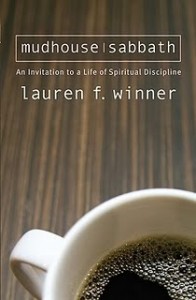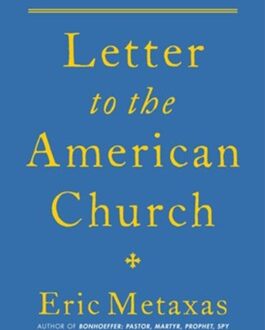Mudhouse Sabbath
 Yesterday in Sunday school, my friend Polly extracted some excerpts from the chapter in this book about mourning. A young mother known to many people at church had died earlier in the week when another car inexplicably veered into her lane and hit hers head-on. Her husband and three children — one, who was in the car with her, in critical condition — are left to make sense of this tragedy and somehow “get on with their lives.”
Yesterday in Sunday school, my friend Polly extracted some excerpts from the chapter in this book about mourning. A young mother known to many people at church had died earlier in the week when another car inexplicably veered into her lane and hit hers head-on. Her husband and three children — one, who was in the car with her, in critical condition — are left to make sense of this tragedy and somehow “get on with their lives.”
The excerpts Polly chose rightly observed that “Christianity has a hopeful and true vocabulary for death-and-resurrection. It is Judaism that offers the grammar for in between, for the mourning after death and before Easter.”
“I have to read that book,” I told Polly afterward. At which point she drew the book out of her purse and handed it to me. I asked her if she was sure she could spare it. “You’ll read it fast,” she said.
She was right. Here I am, a day later, having finished Lauren Winner’s Mudhouse Sabbath: An Invitation to a Life of Spiritual Discipline. It’s a short book, just 142 pages, that takes eleven of the spiritual practices of Judaism and shows how they can enrich a Christian spiritual life. Like Girl Meets God, the style is reflective and intelligent without being the least bit ponderous, and it’s a worthwhile read (and, probably, re-read).
I tend to view Christianity as an enriched, completed form of Judaism — or at least, it should be. Looked at this way, the Jewish practices Winner describes here become not new discoveries that (as the back cover promises) “can transform the way Christians view the world,” but perhaps as elements essential to Christianity that have been lost. It’s a sadder way of seeing things, actually. But thanks to writers like Winner, a hopeful way, because I feel like some of that loss can be recovered.
Winner’s way of viewing these practices seems consistent with Jesus’s own way of seeing them. In the same way Christ’s authority was frequently recognized through his insight into the meaning behind rituals and practices that could become merely legalistic, Winner’s approach here is to suggest ways that the Christian can incorporate them meditatively and meaningfully.
My favorite chapters were those on the Sabbath/Shabbat, Mourning/Avelut, Body/Guf, and Fitting Food/Kashrut. (The latter two chapters recalled to mind some of Wendell Berry’s writings, such as “The Pleasures of Eating” in What Are People For?) I feel grateful for the good teaching I’ve had in my life; I wouldn’t say Winner’s perceptions into how Christians “should” think or believe were new or surprising. What I appreciate is her insight into the relationship between the outward disciplines and the inner life.
This book speaks, too, to a hunger in me to re-connect with tradition. A few months back, in a conversation with some family members, I think I may have alarmed them in my insistence that the ancient Jews in the Old Testament had something we’ve lost. Their more communal experience of their faith, of prayer, and their need to rely on authority and memory in the absence of books and literacy, gave them an experience that was in some ways more whole than we have in this post-Gutenberg, post-Luther, “literate” age. “But we can talk to God ourselves,” said one. “We don’t need all those rituals and legalism.” This book is a reminder that ritual does not lead inevitably to legalism. As Gary Thomas writes, “Symbols have nothing to do with saving us, but they have everything to do with realizing the effects of that salvation upon our everyday lives. Just because we’re saved doesn’t mean we don’t need help to live holy lives.”


